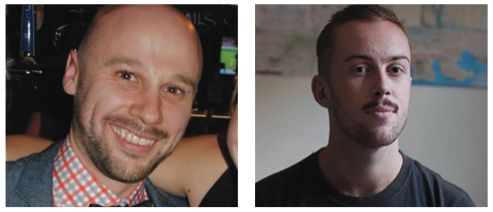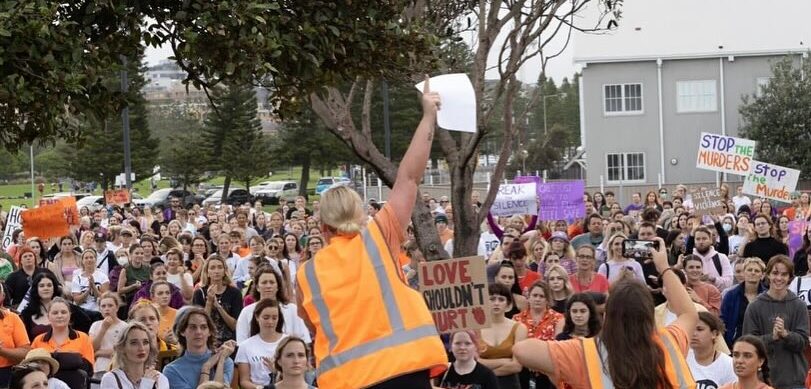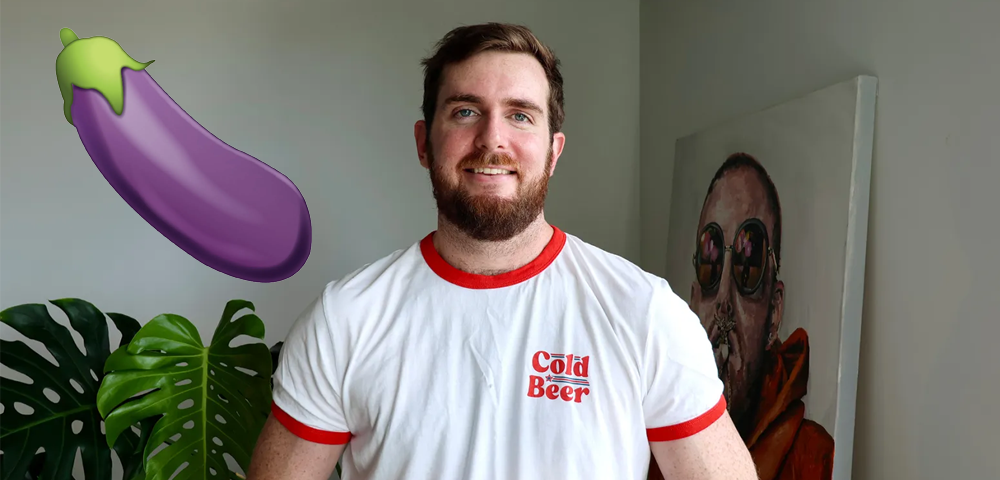
The rise and rise of PrEP

STEVE Spencer and Daniel MacPhail have a few things in common: they both live in Melbourne, both are young, and they happen to be gay men.
They also both use PrEP — and both say it has had a positive impact on their lives.
“It’s totally empowering,” said Spencer, 23.
“I feel like I have such a great responsibility to do what is best for my community, and it’s community-mindedness that will pull us through anything.”
MacPhail, 31, echoed the sentiments.
“I believe it is the responsibility of the individual to keep our sexual health intact,” he said.
“Taking PrEP presents a chance for me to do that and I believe that’s exactly what it will lead people to do as it gains popularity.
“It’s become part of my daily routine, which is great.”
Pre-exposure prophylaxis, or PrEP, is existing HIV antiretroviral medication used by HIV-negative people as a HIV prevention method.
At the recent Conference on Retroviruses and Opportunistic Infections 2015 (CROI) held in Seattle, US, results from both PROUD and IPERGAY studies confirmed that across all participants taking PrEP (and with varying adherence levels), the risk of acquiring HIV was reduced by 86 per cent. Higher levels of protection were reported for those individuals with more consistent adherence levels.
The PROUD study in particular confirmed that PrEP is highly effective in a “real-world setting” — which refers to participants accessing PrEP through health clinics in the community, the way it would be delivered if it were approved and made available — rather than highly-controlled processes around clinical trials.
In the US, PrEP has been approved and available since 2012, but in Australia, trials for the drug are still under way in several states. One of these trials is the two-year VicPrEP Trial in Victoria, of which MacPhail has been a part for about six months.
However, VicPrEP lead researcher Dean Murphy said these studies do not test the efficacy of Truvada, the name of the medication used as PrEP, as this has already been proven.
“[They] are investigating the acceptability of PrEP, the feasibility of making it available in community settings, the extent to which people follow the recommendations for daily use, any changes in their previous HIV prevention practices, and of course their experiences of taking Truvada as PrEP, for example, what happens when they disclose they are on PrEP to potential sex partners,” he said.
Murphy added that VicPrEP’s early findings, including adherence levels and changes that make participants stop taking PrEP, will be reported soon. However, in general participants have so far found it “highly acceptable” as a HIV prevention method option.
“Many of the participants [also] think about their involvement in the project as making an important contribution to the gay community and to ending the HIV epidemic,” Murphy said.
“In the interview arm, people have reported a decrease in anxiety around HIV and sex in general, and also much less anxiety around HIV testing.”
In March, pharmaceutical giant Gilead Sciences applied to have Truvada approved by the Therapeutic Goods Administration (TGA), Australia’s peak regulatory body for medicines. Its significance is that Australia is the first high-income country outside the US where Gilead has made such an application.
While Australians with a prescription for Truvada can import it from overseas via online — an option that has been endorsed by the Victorian AIDS Council (VAC), Living Positive Victoria (LPV), Australasian Society for HIV Medicine and ACON — TGA approval would simplify the process and pave the way for a Pharmaceutical Benefits Scheme (PBS) listing, allowing people to access PrEP cheaply.
“The results from CROI significantly confirm the protective power of PrEP if it is taken as prescribed,” VAC chief executive Simon Ruth said.
“Gilead does not require TGA approval for Truvada to be prescribed as PrEP. This is currently being done. People are choosing to import it as to purchase it locally would be in excess of $1000 per script.
“TGA approval is required for an application to the PBS and it also provides some assurance to doctors that there is support for their prescribing Truvada as PrEP.
“We have had some doctors advise us that they will not prescribe Truvada as PrEP until it receives TGA approval.”
LPV executive officer Brent Allan agreed with Ruth, but believed even after the TGA and PBS obstacles were overcome, there would still be a social challenge.
“The real challenge here is going to be about public opinion,” he said.
“I think there’s going to be a little bit of a challenge around the sense of morality… we have to prepare ourselves for the cultural change before can enact.”
Sebastian Robinson, who lives with HIV and advocates for equality between HIV-positive and HIV-negative men, agreed.
The 28-year-old said the discussion around PrEP needed to be open, and alongside well-funded health campaigns, the media needed to drive and facilitate it properly.
He said the AIDS crisis of the 1980s forced gay men to change their sexual behaviours and ushered in an era of moralising or shaming of particular sexual behaviours, such as condomless sex.
However, with the rise of PrEP he believes this needed to be challenged carefully.
“If you look at our sex life pre-AIDS epidemic, [sex] was a large part of our identity and how we bonded as a community and that was severed when AIDS hit,” Robinson said.
“We have to un-learn things that been ingrained into us… we have to find a way to communicate openly and understand that people’s wants and desires are different.”
Murphy agreed, adding that more awareness and education on PrEP would also remove stigma surrounding HIV.
“I think the framing of PrEP in opposition to condoms has been unhelpful. In this way the focus has been on unprotected/protected sex rather than on preventing HIV, which should be the overall goal,” he said.
“Thinking about PrEP as one prevention strategy among others may offer a way to overcome this binary.”
PrEP use in Australia is already on the rise, partly evident in hook-up apps like Grindr and Scruff where individuals are increasingly putting “(=)” next to their profile names to indicate they are on PrEP — or that they’re seeking partners who take equal responsibility for their sexual health.
“I think sexual health should always be at the forefront of discussion in regards to gay men or anyone who is at risk of HIV,” Robinson said.
“[Using PrEP is] acknowledging the truth that is gay human natural sex, and also going, ‘I can do this and I can do this safely, and I want to do this, and so I will do this for the community to help them move along’.
“[It’s] a new wave of us rediscovering ourselves, and rediscovering our potential and for someone to have the strength to step inside that stigma without being faced with it, as someone who might find themselves in HIV-positive living, I think it’s a noble act.”

Spencer said using PrEP also took the onus off HIV-positive guys, who often had the bigger responsibility of ensuring their sexual practices did not lead to any further HIV transmissions in the gay community.
“A lot of ‘poz’ guys do it to protect their community, which is incredibly selfless,” said Spencer, who has been accessing PrEP independently via the web for about a month.
“If [PrEP] takes the onus off them, then with the negative and positive alliance we can both do something incredibly proactive in combatting HIV.”
Spencer said opponents of PrEP often used the STI argument, which he refuted with the fact STIs could still be transmitted even with condom use.
MacPhail added that a full HIV and STI screening every three months when on PrEP is also highly encouraged by medical professionals.
“It almost forces people to be more conscious of STIs,” he said.
“What has become clear is that [PrEP] is very much like living with HIV, in that you have the regime: you have to take a pill everyday, get your blood tested every three months, make sure you never run out of your meds.”
When MacPhail announced he was taking part in VicPrEP, he underestimated “tremendous amount of support” he’d receive. But there was still a “tiny minority” who responded negatively.
“The common thought I’ve noticed between all the negative feedback, whether it’s around HIV or around PrEP or both, seems to be ‘I don’t know what you’re talking about, I don’t like it and it’s scaring me, and so I’m going to argue with it’,” he said.
Spencer received a similar response to MacPhail, but several people — including his own parents — asked him questions about PrEP.
“At first I had to explain to them what it was, but once I told them, they said, ‘why doesn’t everyone know about this?’” Spencer said.
He added that that conversation made him keen to get the message of PrEP out there as much as possible, including heterosexual people and parents of gay children.
“My endgame is to make everyone aware of it, to make everyone consider it strongly, understand what the benefits are, and why they should consider it.”
For more information on PrEP, visit www.vac.org.au/prep
RELATED: PrEP: Why it’s important for all of us
**This article was first published in the May edition of the Star Observer, which is available to read in digital flip-book format. To obtain a physical copy, click here to find out where you can grab one in Melbourne, Sydney, Brisbane, Adelaide, Canberra and select regional/coastal areas.











Owen Vickery I read this, it’s spectacular! I had the pleasure of speaking to Steve too :)
Nick Lo Guarro